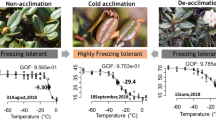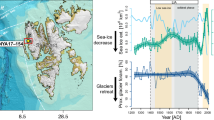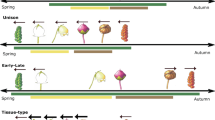Abstract
MR. J. STARKIE GARDNER, in his interesting review of Mr. Seward's valuable essay, makes a statement which I fancy may be misinterpreted at page 268 of NATURE, where he speaks of the fragmentary character of the Arctic tertiary plants, and the inexperience of the collectors. He doubtless is referring to the remains of certain supposed “palms and cycads in the Greenland Eocene,” but those who have not followed this branch of Arctic research would hardly gather from the review that Prof. Heer has determined a magnificent flora of more than 350 species from these northern tertiaries, and that he at once pointed out the absence of tropical and subtropical forms, and the fact that large leaves are not only perfectly preserved up to their edges, but that upright trees associated with their fruits and seeds prove them to have grown on the spot. “Thus of Sequoia Langsdorffi,” he writes, “we see not only the twigs covered with leaves, but also cones and seeds, and even a male catkin”.1
This is a preview of subscription content, access via your institution
Access options
Subscribe to this journal
Receive 51 print issues and online access
$199.00 per year
only $3.90 per issue
Buy this article
- Purchase on SpringerLink
- Instant access to full article PDF
Prices may be subject to local taxes which are calculated during checkout
Similar content being viewed by others
Author information
Authors and Affiliations
Rights and permissions
About this article
Cite this article
DE RANCE, C. Fossil Plants as Tests of Climate. Nature 47, 294 (1893). https://doi.org/10.1038/047294a0
Issue date:
DOI: https://doi.org/10.1038/047294a0



